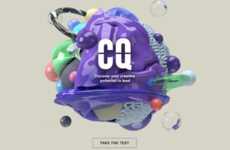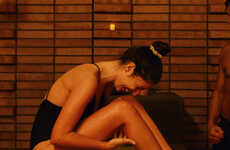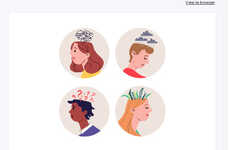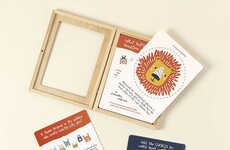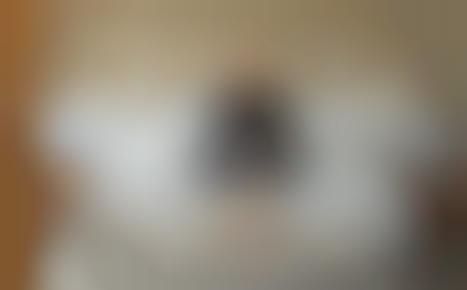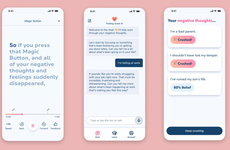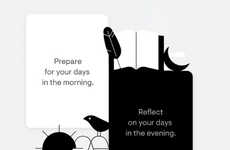
Senduran Bhakthakumaran — March 26, 2012 — Business
References: enlightennext.org & emotionalequations
Chip Conley is a widely recognized business leader. He founded and is the Founder, veteran President and CEO of Joie de Vivre Hospitality. It is the largest independent hotel company in California and has made Chip Conley America’s second largest boutique hotelier.
Conley fuses aspects of psychology and business to develop his own, unique and effective modes for success through an understanding of emotional intelligence. In ‘Emotional Equations,’ he uses math to understand the gray areas of emotion and manipulate them towards opportune success. Chip Conley is recognized speaker, having been called upon by INC, TED and Google. He holds the ISHC Pioneer award and was one among four finalists for Hotels magazine’s “‘Corporate Hotelier of the World’ award.
13 Questions with Chip Conley
1. How did you get involved in emotional intelligence and what motivates you to continue?
Psychologist Abraham Maslow suggested that great companies create “psycho-hygiene” such that they know how to figuratively bathe when difficult times create a sweatbox of a workplace. As the CEO of the largest hotelier in the San Francisco Bay Area during the dot-com bust, I reinterpreted Maslow’s Hierarchy of Needs and found that this iconic theory helped us to triple in size during the most challenging economy. Daniel Goleman proved that two-thirds of effective leadership comes from EQ while only one-third comes from IQ or the amount of experience one has in their work. Both this empirical evidence and my own experience suggest that the intersection of psychology and business is a powerful place if you can harness it for good. Ironically, the word we use to describe the worst of economic times (depression) also describes the worst of emotional times (depression). There’s a huge link between how we feel and how we do in life and in work. My goal is to help people to be more conscious of how their emotions can be their ally rather than be their enemy.
2. How significant are the topics of cool hunting and trend spotting in the world of a hotelier?
Twenty-five years ago, this wasn’t important as hoteliers were not cultural anthropologists. But, the advent of boutique hoteliers has shaken up the industry. In the past, the Marriotts and Hiltons of the world thought that what customers wanted most was consistency and predictability. That is true when you’re traveling in a foreign country or you have some safety concerns, but -- more and more -- lifestyle-driven customers are looking for a hotel experience that inspires them and maybe introduces them to style, design, music, entertainment, and people that stretch their boundaries. Plus, a great boutique hotel should also be a perfect reflection of the personality and identity of the community in which they’re located. So, if I want to really understand the community I’m visiting, I’d rather check out the best boutique hotel in town rather than the local museum.
3. How do you define a trend?
I grew up in a surfing community so a surf break feels like an apt metaphor. A great surfer can spot a wave and determine whether it’s going to build and grow and give him or her a great ride to the shore. A trend is like a great wave whereas a fad is choppy water that masquerades as a wave but doesn’t carry you very far.
4. How do you define cool?
Just like there’s a difference between a trend and a fad, there’s also a difference between what’s hip and what’s cool. Being hip is great, but it also can be sort of externally focused and narcissistic where someone is tragically hip because of how they want to appear to others. To me, cool comes from the soul and it’s much less about image. Cool takes courage and self-awareness and, thus, it’s an alternative form of authenticity. To me, the coolest people, places, and things are soulfully authentic.
5. Do you need a culture of innovation to create something that is cool?
You need a culture of authenticity, curiosity/discovery, and a willingness to be uncool (sometimes, being uncool is the coolest thing you can do). Certainly, a culture of innovation can help fuel that curiosity, but I think coolness has more to do with exploring the world and oneself and then fusing that learning into products and services that address the unrecognized needs of people.
6. What is the best way to create an infectious idea, product or service?
I really do believe it has to do with mind-reading our customers’ unrecognized needs. 95% of our customers’ needs are really unconscious. For example, each time we create a boutique hotel, it’s based upon a magazine or two as the touchstone for the personality and soul of the hotel. When we created the Hotel Vitale, it was based upon “Dwell” magazine meets “Real Simple” and the five adjectives that defined that hotel were modern, urbane, fresh, natural, and nurturing. Taking this unique approach to concepting the hotel helped us to determine that our prospective customers would love to have a yoga studio in this San Francisco Financial District hotel with free yoga class for hotel guests each morning. We decided to do this even though no other business hotel in the US offered a yoga studio and free yoga classes in a downtown location. It was an immediate hit and has led more and more business-class hotels to offer yoga. The way we were able to find the infectious nature of this service was by connecting with the magazine publishing community which is usually very smart about lifestyle trends.
7. What is the key to innovation?
Oscar Wilde once wrote, “Be yourself. Everyone else is taken.” This is good advice for individuals as well as with companies. Any company that wants to innovate better do it from a place of authenticity. If you are going to copy your competitors, you never will be a master innovator. So, knowing the DNA of your company and what makes you different is a key to developing an innovation culture.
We do an exercise at Joie de Vivre that helps stoke this innovation and authenticity. We have managers pair off and sit in front of each other. The first manager says to the second, “What business are we in?” The second manager answers. For example, our hotel managers might say simply, “We’re in the hotel business and we take care of people when they’re away from home.” Then, the first manager asks the question again, “What business are we in?” The second manager can’t answer the same way and has to explore a little more deeply. By the fifth time that manager has to answer that question, he or she may have truly uncovered what’s original about the company.
At Joie de Vivre, we came to learn that we were in the “identity refreshment” business and that our means of innovating was to help our customers feel like they’re in a habitat that’s an aspirational mirror. So, our core customers aren’t just having a lodging experience, they’re having an identity refreshment and this is why we can charge a premium or why we have higher customer satisfaction (had the highest hotel scores in the country in 2010). So, our innovation comes from that place of understanding who we are and what we provide our customers at the most soulful level.
8. What are the most important trends you see in emotional fluency?
Historically, most businesspeople felt they needed to check their emotions at the door (even though, the intersection of emotions and business has usually been a treacherous crossroads). As we have moved from an era of managing traditional business plans to one in which we’re now expected to be change agents daily, the working world has become more fluid. Plus, compared to a quarter century ago, we have many more women in leadership positions and that has introduced a receptivity toward emotions in the workplace. I’m a big fan of Anne Kreamer’s book “It’s Always Personal” which outlines how this gender evolution is affecting companies. Additionally, consumer research used to be very demographically-driven and, thus, statistics and surveys ruled the day. Today, it’s hard to predict consumer behavior based upon demographics as we’re not as predictable and psychographics is what predominates. This means that we as businesspeople need to be emotionally smarter about what makes our key customers tick.
9. What are your ambitions for ‘Emotional Equations?'
I’m thrilled the book has hit the New York Times bestsellers list and that men have been particularly drawn to the book since men don’t usually gravitate to self-help or emotional books. One things that’s clear is that the more externally chaotic the world is, the more we yearn for internal logic and that’s what Emotional Equations offers people. My greatest ambition is to help people make sense of their “internal weather” and to be a better forecaster of difficult emotions when they come up.
10. What is an example of a time where you have thrown away an existing idea to force yourself to find something new?
I’m fortunate enough to be in a place in my life when I am asked to give a dozen speeches a month all over the world. There are many times I show up ready to give the speech that I’ve prepared, but my intuition and initial conversations with the group I’m talking to (prior to the speech) give me cause to rethink whether there’s a bigger message that’s supposed to come through me at this moment. On many occasions, I’ve thrown away a prepared speech and just “winged it” with the faith that I was meant to be a conduit for some important message that this group needed to hear.
The most poignant time when this happened was in November 2008 when I was supposed to give a cheerleading speech to our top 80 leaders in the company at our annual management retreat. Instead, what I felt in the room was a lot of suffering as people worried about what the next year was going to bring with the economy falling apart. So, I introduced my initial Emotional Equations (Despair = Suffering - Meaning which was my means of distilling Viktor Frankl’s landmark book “Man’s Search for Meaning” into a mantra) to these leaders and we had one of the most profound conversations as a leadership team that we’ve ever had in my 24 years of being the CEO of the company.
11. How do you reset yourself to be creative? Do you have any rituals?
Meditation is one of the most reliable means I have for resetting my creative spirit. Liz Gilbert gave an inspired TED talk on the genie that comes through us as genius. The great creative geniuses have a remarkable ability to be a vehicle for collective consciousness and for fleeting inspiration that is in the ether. I find that running on the beach or walking in nature provide me a “thin veil” that connects me to the heavens of inspiration. More than anything, being out of my mind is the best means of cultivating this space for creativity.
12. Professionally, what do you want to be doing or studying in 10 years?
I don’t know what I’ll be doing in 10 minutes, so 10 years is hard to predict. What I do know is that what’s most important to me in my life is being in a place of creativity and freedom, so I know whatever I’ll be doing will have that component. I’m also fascinated with spirituality and ritual, so I might be living in a monastery or in a role as a spiritual teacher or student.
13. What are your most important hobbies?
I have a huge appetite for life so I have an eclectic set of interests: politics, film festivals, art fairs, all kinds of spectator sports, international vagabonding, philosophy and spirituality, hanging out with kids, writing in my backyard cottage. I love playing basketball, water polo, running, CrossFit training, and just about anything I can do with my body.
Conley fuses aspects of psychology and business to develop his own, unique and effective modes for success through an understanding of emotional intelligence. In ‘Emotional Equations,’ he uses math to understand the gray areas of emotion and manipulate them towards opportune success. Chip Conley is recognized speaker, having been called upon by INC, TED and Google. He holds the ISHC Pioneer award and was one among four finalists for Hotels magazine’s “‘Corporate Hotelier of the World’ award.
13 Questions with Chip Conley
1. How did you get involved in emotional intelligence and what motivates you to continue?
Psychologist Abraham Maslow suggested that great companies create “psycho-hygiene” such that they know how to figuratively bathe when difficult times create a sweatbox of a workplace. As the CEO of the largest hotelier in the San Francisco Bay Area during the dot-com bust, I reinterpreted Maslow’s Hierarchy of Needs and found that this iconic theory helped us to triple in size during the most challenging economy. Daniel Goleman proved that two-thirds of effective leadership comes from EQ while only one-third comes from IQ or the amount of experience one has in their work. Both this empirical evidence and my own experience suggest that the intersection of psychology and business is a powerful place if you can harness it for good. Ironically, the word we use to describe the worst of economic times (depression) also describes the worst of emotional times (depression). There’s a huge link between how we feel and how we do in life and in work. My goal is to help people to be more conscious of how their emotions can be their ally rather than be their enemy.
2. How significant are the topics of cool hunting and trend spotting in the world of a hotelier?
Twenty-five years ago, this wasn’t important as hoteliers were not cultural anthropologists. But, the advent of boutique hoteliers has shaken up the industry. In the past, the Marriotts and Hiltons of the world thought that what customers wanted most was consistency and predictability. That is true when you’re traveling in a foreign country or you have some safety concerns, but -- more and more -- lifestyle-driven customers are looking for a hotel experience that inspires them and maybe introduces them to style, design, music, entertainment, and people that stretch their boundaries. Plus, a great boutique hotel should also be a perfect reflection of the personality and identity of the community in which they’re located. So, if I want to really understand the community I’m visiting, I’d rather check out the best boutique hotel in town rather than the local museum.
3. How do you define a trend?
I grew up in a surfing community so a surf break feels like an apt metaphor. A great surfer can spot a wave and determine whether it’s going to build and grow and give him or her a great ride to the shore. A trend is like a great wave whereas a fad is choppy water that masquerades as a wave but doesn’t carry you very far.
4. How do you define cool?
Just like there’s a difference between a trend and a fad, there’s also a difference between what’s hip and what’s cool. Being hip is great, but it also can be sort of externally focused and narcissistic where someone is tragically hip because of how they want to appear to others. To me, cool comes from the soul and it’s much less about image. Cool takes courage and self-awareness and, thus, it’s an alternative form of authenticity. To me, the coolest people, places, and things are soulfully authentic.
5. Do you need a culture of innovation to create something that is cool?
You need a culture of authenticity, curiosity/discovery, and a willingness to be uncool (sometimes, being uncool is the coolest thing you can do). Certainly, a culture of innovation can help fuel that curiosity, but I think coolness has more to do with exploring the world and oneself and then fusing that learning into products and services that address the unrecognized needs of people.
6. What is the best way to create an infectious idea, product or service?
I really do believe it has to do with mind-reading our customers’ unrecognized needs. 95% of our customers’ needs are really unconscious. For example, each time we create a boutique hotel, it’s based upon a magazine or two as the touchstone for the personality and soul of the hotel. When we created the Hotel Vitale, it was based upon “Dwell” magazine meets “Real Simple” and the five adjectives that defined that hotel were modern, urbane, fresh, natural, and nurturing. Taking this unique approach to concepting the hotel helped us to determine that our prospective customers would love to have a yoga studio in this San Francisco Financial District hotel with free yoga class for hotel guests each morning. We decided to do this even though no other business hotel in the US offered a yoga studio and free yoga classes in a downtown location. It was an immediate hit and has led more and more business-class hotels to offer yoga. The way we were able to find the infectious nature of this service was by connecting with the magazine publishing community which is usually very smart about lifestyle trends.
7. What is the key to innovation?
Oscar Wilde once wrote, “Be yourself. Everyone else is taken.” This is good advice for individuals as well as with companies. Any company that wants to innovate better do it from a place of authenticity. If you are going to copy your competitors, you never will be a master innovator. So, knowing the DNA of your company and what makes you different is a key to developing an innovation culture.
We do an exercise at Joie de Vivre that helps stoke this innovation and authenticity. We have managers pair off and sit in front of each other. The first manager says to the second, “What business are we in?” The second manager answers. For example, our hotel managers might say simply, “We’re in the hotel business and we take care of people when they’re away from home.” Then, the first manager asks the question again, “What business are we in?” The second manager can’t answer the same way and has to explore a little more deeply. By the fifth time that manager has to answer that question, he or she may have truly uncovered what’s original about the company.
At Joie de Vivre, we came to learn that we were in the “identity refreshment” business and that our means of innovating was to help our customers feel like they’re in a habitat that’s an aspirational mirror. So, our core customers aren’t just having a lodging experience, they’re having an identity refreshment and this is why we can charge a premium or why we have higher customer satisfaction (had the highest hotel scores in the country in 2010). So, our innovation comes from that place of understanding who we are and what we provide our customers at the most soulful level.
8. What are the most important trends you see in emotional fluency?
Historically, most businesspeople felt they needed to check their emotions at the door (even though, the intersection of emotions and business has usually been a treacherous crossroads). As we have moved from an era of managing traditional business plans to one in which we’re now expected to be change agents daily, the working world has become more fluid. Plus, compared to a quarter century ago, we have many more women in leadership positions and that has introduced a receptivity toward emotions in the workplace. I’m a big fan of Anne Kreamer’s book “It’s Always Personal” which outlines how this gender evolution is affecting companies. Additionally, consumer research used to be very demographically-driven and, thus, statistics and surveys ruled the day. Today, it’s hard to predict consumer behavior based upon demographics as we’re not as predictable and psychographics is what predominates. This means that we as businesspeople need to be emotionally smarter about what makes our key customers tick.
9. What are your ambitions for ‘Emotional Equations?'
I’m thrilled the book has hit the New York Times bestsellers list and that men have been particularly drawn to the book since men don’t usually gravitate to self-help or emotional books. One things that’s clear is that the more externally chaotic the world is, the more we yearn for internal logic and that’s what Emotional Equations offers people. My greatest ambition is to help people make sense of their “internal weather” and to be a better forecaster of difficult emotions when they come up.
10. What is an example of a time where you have thrown away an existing idea to force yourself to find something new?
I’m fortunate enough to be in a place in my life when I am asked to give a dozen speeches a month all over the world. There are many times I show up ready to give the speech that I’ve prepared, but my intuition and initial conversations with the group I’m talking to (prior to the speech) give me cause to rethink whether there’s a bigger message that’s supposed to come through me at this moment. On many occasions, I’ve thrown away a prepared speech and just “winged it” with the faith that I was meant to be a conduit for some important message that this group needed to hear.
The most poignant time when this happened was in November 2008 when I was supposed to give a cheerleading speech to our top 80 leaders in the company at our annual management retreat. Instead, what I felt in the room was a lot of suffering as people worried about what the next year was going to bring with the economy falling apart. So, I introduced my initial Emotional Equations (Despair = Suffering - Meaning which was my means of distilling Viktor Frankl’s landmark book “Man’s Search for Meaning” into a mantra) to these leaders and we had one of the most profound conversations as a leadership team that we’ve ever had in my 24 years of being the CEO of the company.
11. How do you reset yourself to be creative? Do you have any rituals?
Meditation is one of the most reliable means I have for resetting my creative spirit. Liz Gilbert gave an inspired TED talk on the genie that comes through us as genius. The great creative geniuses have a remarkable ability to be a vehicle for collective consciousness and for fleeting inspiration that is in the ether. I find that running on the beach or walking in nature provide me a “thin veil” that connects me to the heavens of inspiration. More than anything, being out of my mind is the best means of cultivating this space for creativity.
12. Professionally, what do you want to be doing or studying in 10 years?
I don’t know what I’ll be doing in 10 minutes, so 10 years is hard to predict. What I do know is that what’s most important to me in my life is being in a place of creativity and freedom, so I know whatever I’ll be doing will have that component. I’m also fascinated with spirituality and ritual, so I might be living in a monastery or in a role as a spiritual teacher or student.
13. What are your most important hobbies?
I have a huge appetite for life so I have an eclectic set of interests: politics, film festivals, art fairs, all kinds of spectator sports, international vagabonding, philosophy and spirituality, hanging out with kids, writing in my backyard cottage. I love playing basketball, water polo, running, CrossFit training, and just about anything I can do with my body.
Trend Themes
1. Emotional Intelligence in Business - Exploring the intersection of psychology and business to harness emotional intelligence for success can be a disruptive innovation opportunity in various industries.
2. Boutique Hotel Experiences - Creating boutique hotel experiences that inspire customers and reflect the personality and identity of the community can lead to disruptive innovation in the hotel industry.
3. Emotional Fluency in the Workplace - Developing emotional fluency and understanding the emotional needs of customers can lead to disruptive innovation in consumer research and business strategies.
Industry Implications
1. Hospitality Industry - Applying emotional intelligence principles to the hospitality industry can lead to disruptive innovation in creating unique and personalized customer experiences.
2. Hotel Industry - Incorporating trends and cultural anthropology into the traditional hotel industry can create disruption by offering customers lifestyle-driven hotel experiences.
3. Consumer Research Industry - Shifting from demographics to psychographics in consumer research can lead to disruptive innovation by understanding the emotional motivations and needs of customers.
2.1
Score
Popularity
Activity
Freshness

